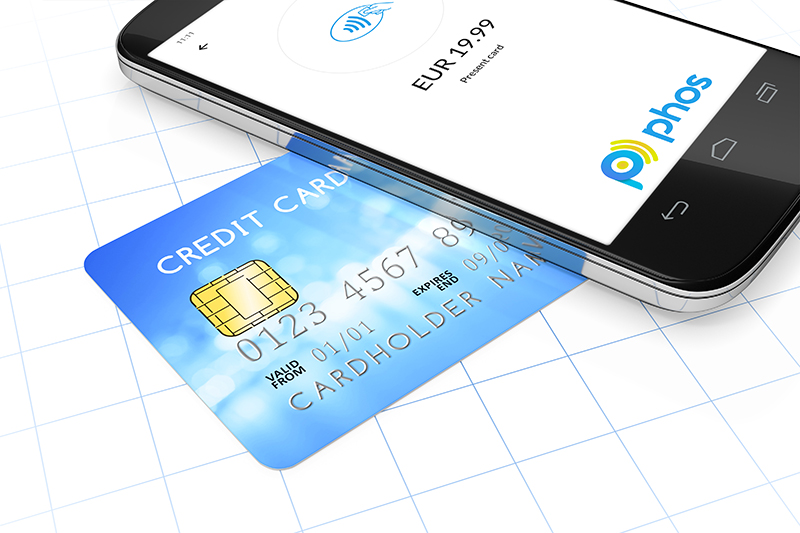
Traditionally, small businesses have been reluctant to give up cash when it comes to their preferred way of accepting payments. However, over time, there’s been a shift in accepting payments with cards fast becoming the firm favourite.
Cash costs money
It’s now a well-known fact that cash is costly.
The time spent in cashing up at the end of a day, plus the time spent depositing cash in the bank, all add up. This is on top of the time spent counting cash at the time of the transaction.
No one wants to count cash
There is an increased likelihood of human error when counting cash. Getting the numbers to add up is often tricky and even the most experienced cashiers in small businesses still face time-consuming re-counts when the cash numbers don’t add up.
Convenience to shoppers
Cards and mobile wallets are the preferred payment method for shoppers. Most shoppers will not be carrying cash and will need to make a special trip to the bank to withdraw money to make a payment – if cards are not accepted. UK Finance’s UK Payments Market Summary 2019 showed that 10% of UK adults were choosing to live in a largely “cashless” way. Within those aged 25 to 34 more than one in six (17%) typically make no more than one cash payment per month.
In some cases, shoppers will actively choose to spend their money only on businesses that accept cards. In some industries, the final total isn’t known until the time of the job, which makes cards significantly more convenient.
For example, a plumber may not know the scope of the issue before arrival, meaning the customer will not know how much cash to withdraw.
Accepting cards at the time of completion, will solve this problem.
Safety first
There are, of course, significant security issues when carrying large amounts of cash. Daily trips to the bank expose merchants to theft and robbery, and make them an easy target for opportunistic thieves.
In-house cash theft is also harder to track. Thieves can take advantage of companies that allow a small margin of error when it comes to cash totals.
And in the current climate, there are additional hygiene issues associated with cash, making them far from optimal for small businesses accepting payments.
These are just some of the reasons why small businesses are moving away from cash and, in some cases, going completely cash-free.

Remove hardware costs
However, going cash-free has its own expense.
Cards have introduced a new cost: the cost of hardware. Payment devices can be pricey, both one-off but also for ongoing support fees and terminal replacement charges.
On top of that, card payments come with a settlement delay – T+3, T+4 and in some cases T+Whenever-the-funds-come-through.
These settlement delays impact cashflow, which for small businesses is crucial.
The settlement delays also have a reconciliation impact, whereby matching up the amount taken on any given day with the funds deposited in the bank account can be inconsistent and difficult to understand.
There are other non-hardware solutions such as Pay-By-Link– but this involves trust and risk that the transaction may not be completed.
So how can merchants experience the benefits of cards (secure, time saving), without the disadvantages of cards (settlement delays, hardware costs)?
The answer is: phos
Thanks to phos, small businesses can accept payments by downloading a single app onto a mobile phone.

It’s a cheaper option: No costly devices and no ongoing fees.
It’s a safer option: No cash handling and zero exposure to cash theft.
It’s a quicker option: No time spent counting and depositing cash. No time wasted waiting for payment devices.
In addition to this, by using phos, merchants can receive the funds immediately – no settlement delays, no reconciliation issues.
A cost-effective way of accepting payments
‘Time’ is the biggest expense when it comes to cash. Hardware prices and ongoing maintenance fees have always been the biggest costs when it comes to small businesses accepting card payments.
But with phos, these costs are removed as our solution is in the form of app that downloads onto an existing device.
Eliminate cash risks
Accepting payments, especially for small businesses, needs to be a quick and seamless journey. Small business-owners cannot afford to spend time counting cash, nor can they spend money on flimsy hardware.
And issues with cashflow are not an option. Merchants want to get paid, when they’ve been paid.
Small businesses that are looking for a cost-effective, time-saving way of accepting payments are moving to phos to answer their payment needs.
The phos Soft POS technology means that merchants can turn any Android device into a payment terminal in a matter of minutes.
No time is wasted counting cash and travelling to a bank to deposit the funds. No money is wasted in buying payment devices and waiting for them (and any subsequent replacements) to arrive. No energy is spent connecting these devices to a phone via Bluetooth. And there are no concerns about settlement delays and cashflow problems.
By using the phos app, small businesses are constantly up-to-date on the latest version and in-line with industry changes when it comes to accepting payments. For example, the recent increase in contactless limits were immediately applied to the phos app.
In a world where small businesses are trying to reduce their costs in time and money, phos is the smarter way of accepting payments.